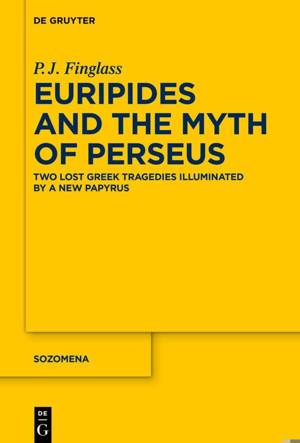
- Afhalen na 1 uur in een winkel met voorraad
- Gratis thuislevering in België
- Ruim aanbod met 7 miljoen producten
- Afhalen na 1 uur in een winkel met voorraad
- Gratis thuislevering in België
- Ruim aanbod met 7 miljoen producten
Euripides and the Myth of Perseus
Two Lost Greek Tragedies Illuminated by a New Papyrus
Patrick FinglassOmschrijving
A recently-published second-century papyrus, P.Oxy. 5283, contains prose summaries (hypotheses) of six plays by the Greek dramatist Euripides, including two lost plays depicting the hero Perseus, Dictys and Danaë. This book demonstrates the significance of this discovery for our understanding of Greek tragedy. After setting out the mythological and dramatic context, and offering a new text and translation based on autopsy, the book analyses the light which the papyrus sheds on these plays, whose narratives, centred on female resistance to abusive male tyrants, speak as powerfully to us today as they did to their original audiences. It then investigates Euripides' tragic trilogy of 431 BC, which ended with Dictys and began with Medea, whose dramatic power now stands in sharper focus given our improved understanding of the production in which it originally appeared. Finally, it ponders the purpose which these hypotheses served, and why readers in the second century AD should have wanted a summary of plays written more than half a millennium before. All Greek (and Latin) is translated, making the book accessible not just to classicists, but to theatre historians and to anyone interested in Greek literature, drama, and mythology.
Specificaties
Betrokkenen
- Auteur(s):
- Uitgeverij:
Inhoud
- Aantal bladzijden:
- 181
- Taal:
- Engels
- Reeks:
- Reeksnummer:
- nr. 21
Eigenschappen
- Productcode (EAN):
- 9783111381695
- Verschijningsdatum:
- 6/08/2024
- Uitvoering:
- Hardcover
- Formaat:
- Genaaid
- Afmetingen:
- 156 mm x 234 mm
- Gewicht:
- 430 g

Alleen bij Standaard Boekhandel
Beoordelingen
We publiceren alleen reviews die voldoen aan de voorwaarden voor reviews. Bekijk onze voorwaarden voor reviews.












